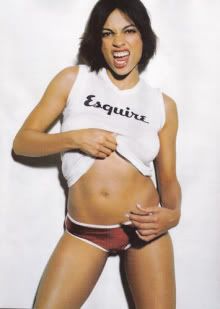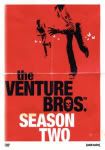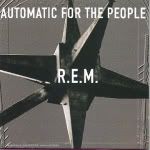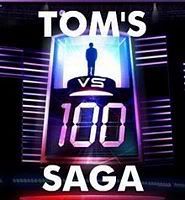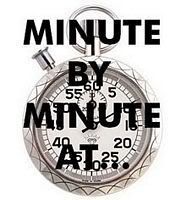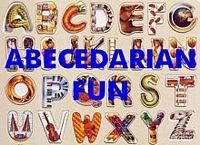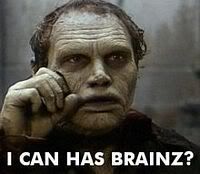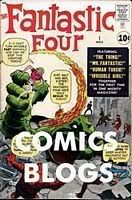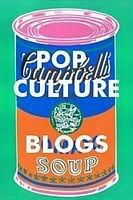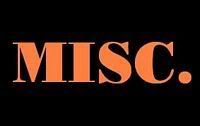COMICS: Lulu Moppet and Glenn Ganges
Here's a weird thing to say: I like Little Lulu.
I've been reading just buckets of praise (a large part of it from Mike) for the new Dark Horse collections of old Little Lulu comics. I kept thinking, "Little Lulu? Really? Whatever." But then finally I broke down last week and picked up My Dinner with Lulu. And I enjoyed the heck out of it. The characters of Lulu and Tubby are so well written, with a child's sense of perfectly logical illogic, and the stories are packed with truly absurd and clever humor. I especially enjoyed the stories Lulu tells to young troublemaker Alvin, which are often filled with artwork comically contradicting what Lulu is saying -- which seems to me a very sophisticated storytelling technique for a children's comic over half a century old (but maybe that's just me, not giving the era and genre enough credit). I'd recommend this book to anybody, and I'll be picking up more collections as soon as my local comic shoppe gets 'em back in stock.
What I would not recommend: Kevin Huizenga's Ganges. I recently wrote about another Huizenga comic, Or Else, which I did not care for. I didn't want to dismiss Huizenga completely after sampling one mini-comic, so I picked up the first issue of Ganges, which has been receiving the lion's share of the copious amounts of praise being lavished on Huizenga's work across the internets. And I'm still not very impressed.
It's beautifully packaged -- perhaps over-packaged. Like the mini-comic, it's on very thick, durable paper; it's over-sized (8"x11", I believe); and it has a (completely gratuitous) removable slipcover, like you'd find on a hardback book. The price, also like the mini, reflects the package: $7.95 for 32 pages. I think the publisher (is it still Drawn & Quarterly?) perceives Huizenga as a "prestige format" kind of guy, and I don't; I think a regular-sized, regular-priced comic would've served the material equally well, or better (at least value-wise).
As for the content, I had much the same problem with it that I did with Or Else. The stories primarily take small, mundane events and expand them into epic occurrences. One whole story in Ganges is built around our hero, Glenn Ganges, witnessing some kid on a bike dumping trash out of his pockets onto the sidewalk. To Ganges, this is a devastating event, and he spins elaborate fantasies out of it -- what will this kid be like when he grows up? How should Ganges have confronted the kid? And I just didn't care. There are ways, I (kind of) said in my look at Or Else, to successfully inflate minutiae into representing a larger reality -- to make the small seem important -- but with this story, I felt the event didn't warrant such vast attention, and the presentation didn't give me any reason to change my mind.
Most of the chapters in Ganges struck me in a similar way, but I didn't hate the book. The bit illustrating the Beatles' "She's Leaving Home," and the ensuing debate of the song's meaning, was kind of clever and cute (although the discussion sounded like it was straight out of a Tarantino movie). Ganges imagining he's time traveling as he walks to the library was visually interesting, with a creative panel structure and imaginative use of thought balloons (or whatever you want to call it) to indicate the character's conception of slipping through time. The final story, in which Ganges watches over his sleeping wife, and envisions the multitudes of other people who have done the same thing with their partners, was effectively dark and moody. But the overall impression the book left me with was one of inconsequentiality. I get the feeling Huizenga thinks he's crafting meaningful and thoughtful tales, delving deep into the richness of the mind's interior, exploring the larger meaning in the commonplace and banal, but the stories mostly leave me going: "Yeah...? And...?" It's all much ado about nothing, and aside from a few graphically inspired flourishes, the "ado" doesn't grab me. I think I'm done with Huizenga.

